What's Hyper-pigmenation: Age Spots, Sun Spots, Melasma?
Ever had spots, patches, discoloration, or unevenness on your skin? These spots, patches, discoloration, and uneven skin tone are collectively referred to as hyper-pigmentation.
Hyper-pigmentation is a common skin condition that makes some parts of the skin darker than others. It is usually caused by acne scars, hormonal changes, medication, sun damage, and so on. It also occurs when excess melanin forms dark patches on the skin.
What are the most Dermatologist prescribed treatments of Hyper-pigmentation?
Hyper-pigmentation can be quite frustrating and annoying to get rid of. What makes it even more frustrating is that some treatments that are recommended for it, cause more damage to the skin. In fact, Hydroquinone, which is commonly prescribed by dermatologists to treat hyper-pigmentation, has been known to be quite harmful to the skin, and is now banned in many countries around the world.
Throughout my career in beauty, I often noticed that clients that had the most aggressive forms of pigmentation are the ones that previously used ingredients such as Hydroquinone or even Retinoids. Hydroquinone, specifically, is an ingredient that works by bleaching the skin, decreasing the number of melanocytes that are responsible for producing melanin. So you end up with less melanin- AKA, color. Theoretically, this sounds like a great solution. However, I have seen many cases where a few months down the road, hyper-pigmentation comes back angrier and darker. You can only suppress the skin's production of melanin for a certain time. I've seen this time and again. This same principle applies to acne; the more you fight it, the harder it becomes to get rid of.
This is all due to the fact that you are creating an imbalance in the skin to the point where it loses proper function. The simple solution is to work with the skin, not against it.
Back to discoloration... Aside from Hydroquinone, other commonly prerscribed treatments are AHA's & BHA's, which have become staples in most skincare routines. Those, too, can render negative side effects with consistent use, especially if not protecting properly form UV.
AHA's and BHA's work by exfoliating the skin surface, removing the discolored top layers. This is generally helpful in the presence of topical acne scars, which appear on the surface only. But as far as Melasma, and sun spots, Alpha and Beta Hydroxy Acids don't work as effectively. This is because they are unable to address the root cause of the issue. If the Melanocytes are functioning improperly due to one problem or another, that dysfunction isn't getting addressed. The issue will persist. And there is only so much skin that you can turnover. So exfoliation alone won't get you far.
Consistent use of Retinoids, AHA's and BHA's also leads to skin dehydration and dryness, which are the leading causes of wrinkle formation, not to mention photo-sensitivity. With consistent use of those ingredients, especially in high concentrations, the skin becomes more susceptible to burning and discoloration. That is because the skin is in a constant state of inflammation & the lipid protective layer becomes compromised die to the over-exfoliation.
A few people can have temporary success using chemical exfoliants, but only when they are extremely diligent with the use of sunscreen, staying out of the sun as much as possible, and using products that are high in antioxidant content, while maintaining a healthy diet that's rich in omega-3 fatty acids, minerals & powerful antioxidants.
10 Best Ingredients For Hyper-pigmentation That Won’t Irritate Your Skin
1- Niacinamide:
Studies have shown that Niacinamide can help fade hyper-pigmentation. The effects were seen after four weeks but not beyond two months.
Niacinamide is generally safe to use but just like any other product that is applied topically, people with pre-existing allergies might react negatively to it. Also, when it is used excessively, it might cause skin irritation and redness. So the key here is to use with caution and patch test. I advise doing a 24-hour patch test on the forearm (not face) with a pea-sized amount of Niacinamide. If it causes irritation in the 24-hour window, it shouldn’t be used. Otherwise, just avoid excessive use for best results.
When it comes to a great Niacinamide infused product, the first one that comes to mind is Bloomeffects Black Tulip Overnight Retinoid Serum. I have used it for several weeks now, and have had great success with it. I have very sensitive and reactive skin, and this hasn't caused any irritation at all. Besides Niacinamide the serum also contains Hemp Seed Oil Complex, Lingonberry, and Saponaria Pumila Stem Cells. Powerful active ingredients that reduce the appearance of spots, wrinkles, and uneven skin tone.
2- Azelaic acid
Azelaic acid is also well recommended for hyper-pigmentation. At a certain dose, the acid fades dark spots formed from hyper-pigmentation. It also works by preventing the formation of tyrosinase. Versine Gentle Actives Clarity Serum features this amazing ingredient along with powerful ingredients such as, Vitamin C, Niacinamide, Squalane, Hyaluronic Acid, Kakadu Plum Extract, Ceramide. This multi-tasking serum has got you covered!
3- Vitamin C
This one goes without saying as it s the most recommended ingredient EVER! But if you think about it, if it was that effective wouldn't everyone's pigmentation be resolved? Well, not all vitamin C serums are equal. The most popular ingredient that you'd find in mainstream formulations, including those recommended by dermatologist, is L-Ascorbic Acid. This is because most studies have been done on this form. Studies are mostly done in-vitro (in the lab) and don;t take into account this ingredient's exposure to light and air, which makes it oxidize very quickly, rendering it ineffective. Additionally, it is a very sensitizing ingredient, meaning it causes sensitivity with long-term use, which is not helpful. What's the point of skincare helping for the short-term, leaving you reactive to most products, red and inflamed. No, thanks!
Now let's get to the better vitamin c ingredients. Many oils such as Rose-hip naturally have vitamin c, so that's pretty easy to incorporate without worrying about reactivity.
But as far as pure vitamin c ingredients, the ingredient that has shown so much promise in both efficacy and tolerance by skin, is Magnesium Ascorbyl Phosphate. If you are an ingredient nerd like I am, you've probably noticed it in most clean and conscious formulations.
If you're wondering where you can find these ingredients, one of the best clean formulations I could find is Versine. This brand developed two serums that are designed for pregnant women, although I think they should be marketed to everyone. The two serums are identical with the exception of one having Azelaic Acid & one having Mandelic Acid. I recommend the former to those with oily / acne-prone skin, and the second to dry and sensitive skin types. Both with address pigmentation.
4- Rosehip oil:
Rosehip oil is another ingredient that can help fade hyper-pigmentation. It contains vitamin A and Vitamin C, both of which are ingredients that are said to have skin-brightening and evening properties. This is in addition to having reparative Vitamin E. Rosehip oil is handsdown my absolute favorite Retinol alternative!
Rosehip oil is generally safe for all skin types and should be used in moderation if pregnant or breast-feeding.
You can find Rosehip oil in Barrier Repair Serum, a superior formula that combines the most powerful and effective oils out there, that are well tolerated by sensitive skin, helping address discoloration, moisture, and sensitivity.
5-Tranexamic acid:
Tranexamic acid comes from the amino acid lysine. A 2019 study showed that 5% Tranexamic acid is just as effective at treating hyper-pigmentation as 3% hydroquinone. The participants also showed higher satisfaction with tranexamic acid than with hydroquinone.
Tranexamic acid is generally safe for all skin types including sensitive skin and side effects are rare. However, people with pre-existing allergies can also react negatively to tranexamic acid. Therefore, the 24-hour patch test should be conducted on tranexamic acid.
The first recommendation that comes to mind with regard to this ingredient is The Inkey List Tranexamic Acid Serum. It contains 2% Tranexamic Acid, 2% Acai Berry extract to promote even skin tone, as well as 2% Vitamin C derivative.
6- Glutathione:
Glutathione is often called the Master Antioxidant. It comprises 3 amino acids; cysteine, glutamic acid, and glycine. A 2017 review showed that Glutathione fades hyper-pigmentation by regulating the production of melanin.
Glutathione is mainly used in supplement form, and Thorne's Glutathione supplement is a great option. Another alternative to supplements is to increase your intake of foods that contain Glutathione. Eggs, nuts, legumes, fish, chicken, flaxseeds, and broccoli. All are examples of foods that contain Glutathione.
7- Green tea extract:
Research has shown that green tea extract can help fade hyper-pigmentation when applied topically on the skin. Green tea can also be made into a face mask and applied to the face to enjoy its benefits.
Green tea extract can be used by all skin types with no risk of side effects. If you want to get rid of hyper-pigmentation and are going after clean and conscious beauty, green tea extract should definitely be added to your skincare routine.
Although there are many skincare products I could recommend with Green Tea, I recommend consuming the tea itself, especially pure Japanese Matcha. An antioxidant-rich powerhouse. Rich in L-theanine which helps deliver calm, clean energy that stays steady all day long, chlorophyll, antioxidants, and amino acids. All these elements will help regulate skin function from the inside out, better that any skincare product can! Oasis Adaptogens Magic Matcha blend is the perfect way to incorporate these nutrients in your favorite drink or smoothie!
8- Licorice root:
Licorice root combats melanin and free radicals production which forms dark spots on the face. Most dark spot removers contain licorice root as their major ingredient.
Short-term use of licorice root in foods is considered safe, however, long-term use and overdose aren’t advisable as it has some side effects when used for a long period and in excess quantity.
9- Aloe Vera:
A 2012 study shows aloe vera contains aloin, a natural de-pigmentation compound that lightens the skin and offers an effective non-toxic treatment for hyper-pigmentation. Aloe Vera gel can be applied on hyper-pigmentation spots at night and then rinsed with warm water the next morning for the best results.
My favorite Aloe-rich product is Blübiome Stem Cell Repair Cream. It's my go-to for a comprehensive multi-tasking and anti-aging moisturizer.
10- Turmeric:
Turmeric prevents the production of melanin on the skin. A study found that a turmeric-based cream reduced hyper-pigmentation by 14% in 4 weeks.
My top recommendation in this category is Vivaiodays Suncreen which is beneficial for fightening pigmentation, not only due to containing Turmeric, but also being a phenomenal mineral zinc sunscreen that's suitable for kids & aaults alike.
Conclusion:
The 10 ingredients listed have been trusted to be safe on all skin types. In order to boost their efficacy, I recommend gentle chemical exfoliation every 7 to 10 days, using a clean mask such as Taïla Nava Jungol. I should preface that none of the above-mentioned ingredients or products would work optimally if you aren't diligent about sunscreen application. Learn about the best sunscreens here.
Be well. Be safe. Be beautiful.
Disclaimer:
As a blogger, my content may include affiliate links from advertisers. I may earn a small commission from actions readers take on these links such as a purchase, or subscribe. All my recommendations are based on my own research and personal trust in the products that I share. I am not a doctor or nutritionist. Please consult with your practitioner prior to using any products recommended.
https://www.medicalnewstoday.com/articles/tranexamic-acid-skin#benefits
https://www.healthline.com/health/beauty-skin-care/tranexamic-acid-for-skin
https://www.healthline.com/health/beauty-skin-care/resveratrol-for-skin#benefits-of-resveratrol
https://www.medicalnewstoday.com/articles/319599#how-is-kojic-acid-used


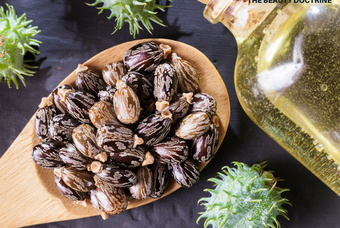
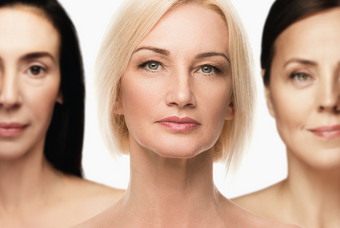
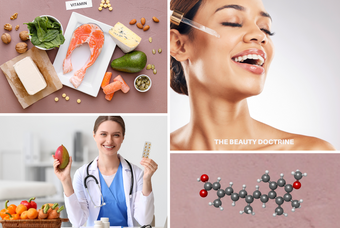
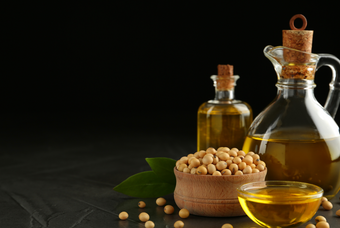
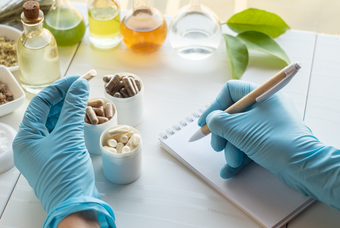
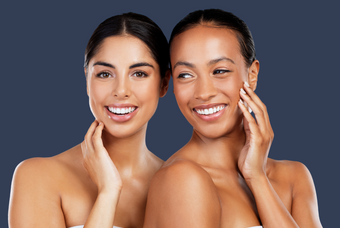
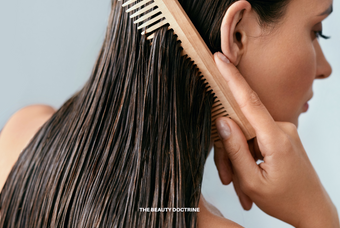
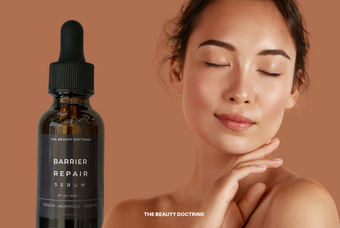
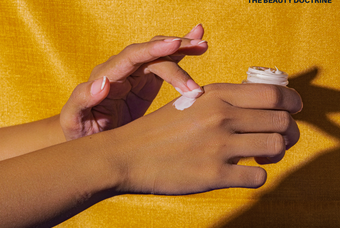

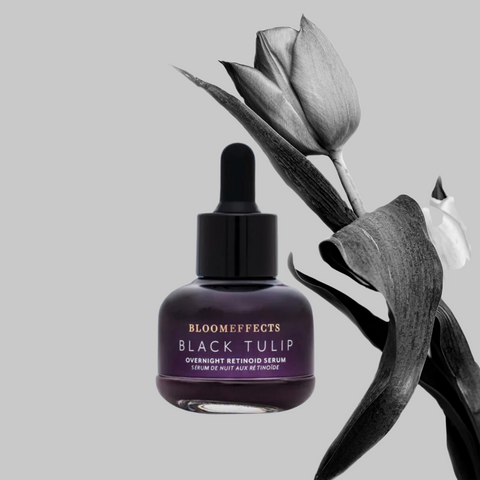










0 comments. Write a comment